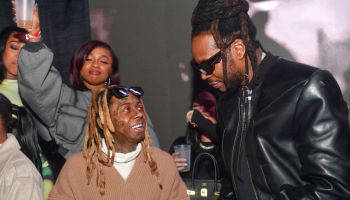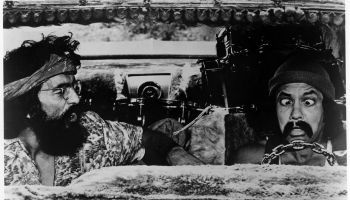Before there was Trayvon, there was a young man named Oscar Grant.
Oscar Grant was an unarmed 22-year-old who was fatally shot by authorities at the Fruitvale train station in Oakland on New Year’s Day 2009. The case inspired the movie Fruitvale Station starring Michael B. Jordan (below), Melonie Diaz and Octavia Spencer, which will be in theaters July 12.
The movie was inspired by real events and today, we’re going to give you the 411 on what happened during the real life case of Oscar Grant; the man whose life and death became the makings of Fruitvale Station.
Bay Area Rapid Transit cop Toni Pirone, an ex-marine, was on the platform and immediately started targeting Black and Latino youth after hearing a radio message regarding a nearby fight, although he had no clear description of who was involved.
When four of Oscar’s friends got off the train, Pirone let three of them leave, but grabbed one. Pirone began yelling, cursing and banging on the train window, pointing at Oscar and his friend Michael. He ordered the two boys off the train.
As soon as Oscar and his friend stepped off the train, they were assaulted. As the beating continued, more cops came and threatened the surrounding youth.
When three of Oscar’s other friends got off the train, they too were held against the side of the transportation by Officer Marysol Domenici, who thrust a taser at each one, tapping one between the eyes with it.
Oscar fell to a sitting position and put his hands up in a submission gesture.
Pirone then pushed Oscar’s face to the pavement, still threatening to tase him.
Johannes Mehserle straddled Oscar’s back, pulling his arms back. Pirone dug his knee into Oscar’s neck.
Through this ordeal, witnesses shouted at police officers…
“That’s fucked up. Let him go!”
Witnesses heard Oscar cry out in pain:
“I have a four-year-old daughter, don’t tase me.”
Oscar and his friends were fully in “police control,” not resisting.
But Pirone and Mehserle didn’t stop, their actions escalated. With Pirone still on Oscar, Mehserle wrenched his gun from its holster and shot Oscar Grant at close range—in the back.
Twelve days after the murder, Johannes Mesherle was arrested and charged.
The trial was moved to Los Angeles due to intense media coverage and racial tensions.
The public and family understandably demanded justice. Throughout the trial, Johannes claimed that he mistakenly drew his gun out instead of his taser when he shot Oscar.
The police murder, caught on cell phone videos, allowed the police and their supporters to come up with many explanations:
“The killer-cop was a poorly trained rookie; he meant to go for his taser; he was scared; he’s a lone racist; it was a terrible, unexplainable mistake.”
Oscar’s girlfriend Sophina Mesa spoke to him just before hearing the shot:
“He said it was fast. They’re beating us up for no reason.”
In the end, Johannes was found guilty of involuntary manslaughter instead of murder. He was sentenced to two years, which is the minimum for the charge.
Oscar’s family and supporters were disappointed with the verdict.
“My son was murdered, and the law hasn’t held the officer accountable the way he should be,” Grant’s mother, Wanda Johnson, said.
When the verdict and sentencing was read, riots took place all over Oakland. At least one hundred people were arrested after confrontations with police. Up to 1,000 protestors took to the streets and some wore masks with images of Oscar’s face. Several car windows and shops were smashed, goods were stolen and police lines attacked.
“This city is not the wild wild west. This city will not tolerate this activity,” the Oakland Police Chief was quoted as saying.
Johannes Mesherle was released on June 13, 2011 and is now on parole.
Be sure to check out Fruitvale Station in theaters on July 12th for more.
PHOTO CREDIT/VIDEO CREDIT: GETTY IMAGES/YOUTUBE
















